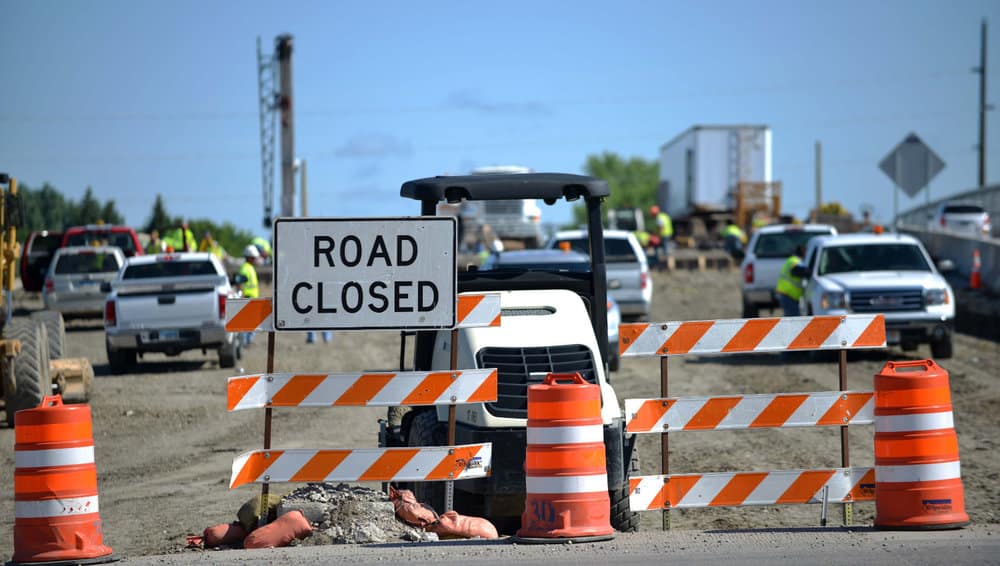
While transportation was not a front-of-the-ticket issue for politicians in the midterm elections, there were some significant developments when it came to funding, most notably in California.
Last year, the state passed a fuels tax hike that increased the gasoline tax 12 cents and the diesel fuel tax 20 cents. The increases are expected to generate some $5.4 billion a year. On Tuesday, voters were asked in a referendum, Prop 6, whether the state should repeal the tax as well as a $50 per vehicle registration fee hike.
The proposal was rejected by 55.3% to 44.7% by voters.
Republicans in the state had championed the repeal effort, but it faced opposition from construction groups, firefighters and Democrats, who all argued the money was needed to improve road conditions.
“California voters were not fooled,” Brian Rice, president of California Professional Firefighters, told the Desert Sun. “It’s a tax, it’s tough, but I think that they understood what it brings to the state.”
In Connecticut, Democratic candidate Ned Lamont appears to have won the governor’s race, just edging out Bob Stefanowski, although the race is still close with the city of New Haven yet to submit results as of early this morning and a potential legal proceeding pending on Friday over same-day registration and the long lines that resulted in the state.
Lamont’s campaign platform included a plan to add truck-only tolls in the state to help raise revenue as Connecticut faces a $4 billion budget shortfall. Lamont believes the tolls could raise $360 million annually. Rhode Island recently instituted truck-only tolls. The American Trucking Associations and three carriers have sued the state.
Voters in Connecticut also approved a “transportation lockbox” that will ensure transportation taxes are used only for transportation projects in the state. Advocates of the lockbox say it is not foolproof, but will provide more accountability for lawmakers. The state already has a Special Transportation Fund for infrastructure projects, but last year lawmakers approved spending that exceeded revenues.
At the national level, New Jersey Sen. Bob Menendez (D) was reelected. Menendez is the ranking member of the Housing, Transportation and Community Development subcommittee in the House. Delaware Sen. Tom Carper, the ranking democrat on the Environment and Public Works Committee, also won reelection.
U.S. Rep. Mario Diaz-Balart (R-FL), won his race. Diaz-Balart is chairman of the transportation appropriations subpanel.
With the Democrats taking control of the House, though, committee leaderships will change hands. There also may be an opportunity to develop an infrastructure bill. The Democrats have previously proposed a $1 trillion infrastructure package that Republicans opposed, but President Donald Trump pushed early on for major infrastructure investment. In his State of the Union speech, Trump pitched a $1.5 trillion proposal with the federal government contributing about 20% and private enterprise and states making up the rest. The Democrats are not likely to go for that plan, but a compromise could be possible.
“We will deliver a transformational investment in America’s infrastructure to create more good-paying jobs, rebuilding our roads, bridges, schools, water systems, broadband networks…housing and beyond,” U.S. Rep. Nancy Pelosi (D-CA) said after it was announced Democrats would regain the House. Pelosi is the likely next Speaker of the House.
Before the election, Trump said he could work with Democrats on infrastructure.
“They want infrastructure…. I want infrastructure. There’s something that can bring us together,” he said.
In more regional voting, in Texas, Collin County voters approved $750 million worth of bonds related to transportation projects and in South Carolina, voters in Beaufort County supported a 1% sales tax increase to pay for infrastructure projects. The increase is expected to raise about $120 million, with about two-thirds of that going to replace of repair bridges leading to Hilton Head Island.
Bay area voters in California passed a 0.5% sales tax increase for transportation projects. The increase would go into effect in April and last for 30 years. It will generate an estimated $49 million a year.
Colorado had two transportation ballot questions, each taking a different approach to transportation funding. There was concern in the state that both would pass and create confusion, but as it turned out, voters rejected both. Proposition 109 would have allowed the state to borrow $3.5 billion in bonds to fix highways while Proposition 110 would have done the same by raising taxes 0.62% for 20 years.
The state’s voters also rejected a proposal that would have compensated property owners if a law or regulation reduced the market value of their property. At the same time, voters also voted down a proposal that would have mandated a 2,500-foot buffer zone between any oil or gas developments and homes, schools or parks.
